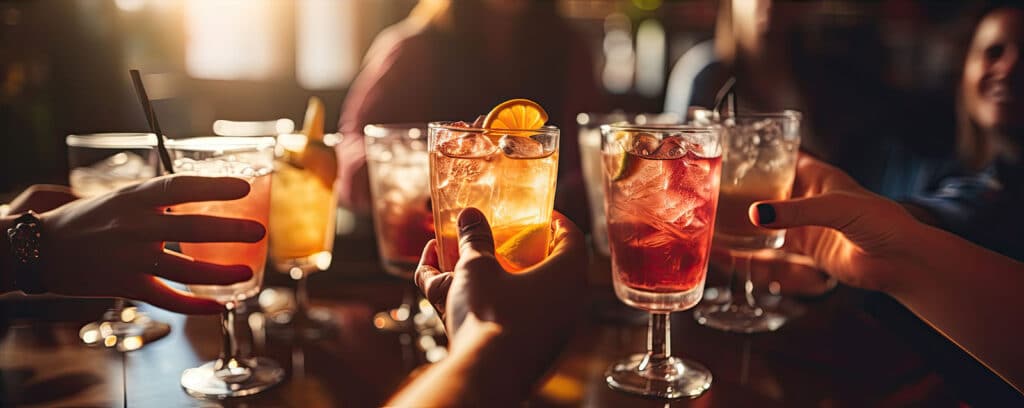You’d decline if you were at a social gathering and your friend offered you a glass of mild poison. If they said, “C’mon, drink this; it’d make it harder to walk, speak, and remember things, and you’ll feel awful tomorrow,” you’d be even less likely to agree. You might even get annoyed at their audacity if they also expected you to pay for it. You certainly wouldn’t be grateful for it, then buy yourself and them several more doses throughout an evening. Nonetheless, this happens all the time.
Alcohol does all these things described above and more. Still, many people don’t let that put them off. And when holidays come around, alcohol consumption goes up. The parties, time off, social visits, brunch, etc. All these festivities add up to an increase in our intake of something that counts as a toxin if the dose is high enough.
According to the 2018 National Survey on Drug Use and Health (NSDUH), 86.3 percent of people ages 18 or older reported that they drank alcohol at some point in their lifetime; 70.0 percent reported that they drank in the past year; 55.3 percent reported that they drank in the past month.

Is Alcohol a depressant?
Alcohol is a depressant. Alcohol suppresses activity in the prefrontal cortex and temporal lobes. Rational thought, planning, assessment, and anger suppression are the prefrontal cortex’s responsibilities, which all go out the window after the 6th drink. The temporal lobes are responsible for memory processing, and we know how alcohol affects memory (well, most of the time). This explains why we become more incoherent, forgetful, and less restrained the more we drink.
This doesn’t explain why we enjoy alcohol, though. So, what makes drinking alcohol enjoyable? This aspect seems to come from the fact that alcohol increases activity to release dopamine in the reward section of the brain, as well as opioid cells that release endorphins. These activities produce joy, pleasure, and euphoria, depending on the type of activation. That’s why drinking can be so pleasurable, at least at first.
Celebrating with Alcohol
When we celebrate with friends, it usually starts with having an enjoyable time. We start with a couple of drinks, and everyone enjoys conversation, laughing, and getting along; a lot of fun is had. With all this fun from the euphoric effects of alcohol, why wouldn’t you keep drinking?
So you keep drinking, and things change after a certain point. You start to feel tired, lacking speech, and emotions fire up over nothing. The atmosphere is now a lot bleaker. This usually follows with a next morning hangover. A hangover that makes you promise yourself you will never drink again. Until you do.
Alcohol often has a strong effect on people—and throughout history, people have struggled to understand and manage alcohol’s power. This struggle to manage alcohol’s power, in most cases, leads to alcoholism. Alcoholism can affect so many aspects of your life, just like any other abused substance. Alcoholism can put your employment, personal relationships, financial situations, and more at risk. It turns your whole world upside down, and the worst of it, someone can get hurt or even killed. If you are lucky enough not to put someone in danger if you get behind the wheel, you put yourself in danger every time you consume more than one or two drinks a day, and for alcoholics, that means we put ourselves in danger every time we pick up a drink.
Get the Help You Need
We can help you put down that drink and keep it down at Garden State Treatment Center. To get the proper treatment that will help you live a life not controlled by alcohol consumption, you need to take the first step and ask for help. Our alcohol addiction rehab in New Jersey will improve your chances of becoming and staying healthy.
FAQ
Why is drinking fun?
Does alcohol make people lively?
Published on: 2024-05-13
Updated on: 2025-06-05



